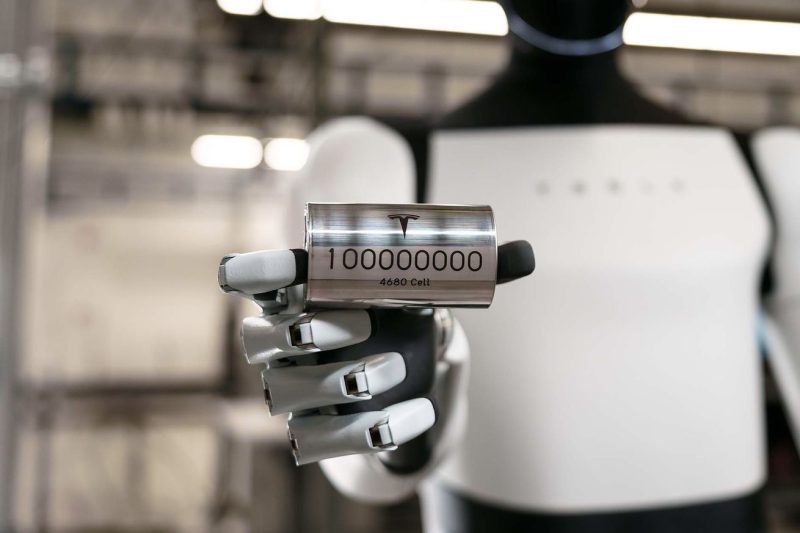In the fast-paced world of technological advancements, the battle for supremacy in the energy storage sector is heating up. As the demand for electric vehicles continues to surge, the need for high-performance batteries has never been more pressing. In this landscape, the emergence of Tesla’s revolutionary 4680 battery cell has sent shockwaves throughout the industry. However, the world’s biggest battery maker remains skeptical of the long-term viability of Elon Musk’s groundbreaking innovation.
Panasonic, a major player in the global battery market, has raised concerns about the potential drawbacks of Tesla’s 4680 cell. While the new battery design promises greater energy efficiency and improved performance, Panasonic warns that the technology may have inherent flaws that could ultimately lead to failure. The Japanese company is known for its expertise in battery manufacturing and has a deep understanding of the complexities involved in scaling up production while maintaining quality standards.
One of the primary issues highlighted by Panasonic is the size of the 4680 cell. While larger cells can offer advantages in terms of energy density and storage capacity, they also present challenges in terms of manufacturing consistency and quality control. The company cautions that the increased size of the cells may result in uneven distribution of materials, leading to potential performance degradation and safety risks.
Furthermore, Panasonic raises concerns about the thermal management of the 4680 cell. Maintaining optimal operating temperatures is crucial for battery performance and longevity, especially in high-stress conditions such as fast charging and discharging. The larger size of the 4680 cell could pose difficulties in dissipating heat efficiently, which may impact overall battery performance and lifespan.
Despite these reservations, Tesla remains confident in the capabilities of its 4680 cell and continues to invest heavily in scaling up production. The electric vehicle manufacturer aims to revolutionize the global battery market and drive the shift towards sustainable energy solutions. Elon Musk’s vision for a future powered by renewable energy is driving innovation and pushing the boundaries of what is possible in the realm of battery technology.
As the race for dominance in the energy storage sector intensifies, the clash between tradition and innovation becomes increasingly apparent. While established players like Panasonic bring decades of experience and technical know-how to the table, disruptive forces like Tesla are challenging the status quo and pushing for groundbreaking advancements. The outcome of this showdown will shape the future of the battery industry and determine the direction of sustainable energy solutions for years to come.
In conclusion, the debate surrounding Tesla’s 4680 battery cell underscores the complexities and challenges inherent in the pursuit of energy storage innovation. While the technology holds promise for revolutionizing the electric vehicle market, concerns raised by industry veterans like Panasonic highlight the importance of rigorous testing and validation processes. As the battle for supremacy rages on, it is clear that the future of energy storage will be defined by a delicate balance between innovation and reliability.






























